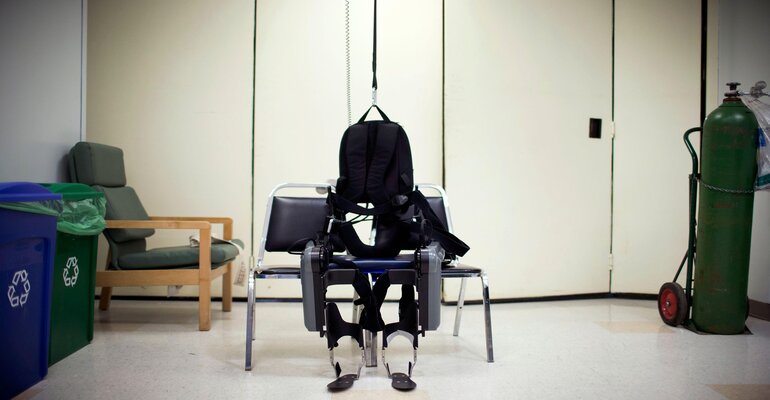The ruling gives eligible insured people a legal basis for obtaining the device.

ReWalk Robotics today reported that insurance provider, Barmer, will accept the prior ruling from the German state court stating that exoskeletons are classified as direct disability compensation. The insurer also withdrew its pending case at the federal level shortly before the hearing.
ReWalk is a wearable robotic exoskeleton that provides powered hip and knee motion to enable individuals with spinal cord injury (SCI) to stand upright, walk, turn, and climb and descend stairs. The system provides user-initiated mobility through a wearable brace support that is light and battery-operated, a computer-based control system, and motion sensors.
The ruling means that eligible insured people with SCI have a legal basis for the supply of an exoskeleton as an orthopedic aid for direct compensation in Germany, which is considered ReWalk’s largest market for exoskeletons. “We anticipate that today’s events will have immense significance for paraplegics in Germany,” said Professor Thomas Ratajczak, legal representative for the plaintiff in this case. “The precedent set by the state court is enforceable and legally binding and will help ensure that eligible individuals with spinal cord injuries have a legal basis to obtain this technology.”
One such person that will benefit from the ruling is the case’s plaintiff, Lars Vinken, who said, “After seven years of waiting to walk in an exoskeleton, I am excited that Barmer will now provide me with a ReWalk. It is of great value to know that other paraplegics will now have easier access to this technology. To be supplied with an exoskeleton and be able to stand up and walk again at any time opens new horizons for me.”
The court came to its decision based on a determination that an exoskeleton device directly compensates for the loss of abilities in people with SCI, like the ability to stand, walk, and ascend or descend stairs and curbs. Direct disability compensation applies to medical aids which replace failed or impaired bodily functions, like SCI, to the extent that the person using them is on par with people without disabilities. Of note, according to the press release announcing the ruling, the provision of an advanced technical aid, such as ReWalk, can be provided to the medically eligible insured person regardless of previously supplied medical aids.
“The successful conclusion of this legal dispute identifying the exoskeleton as direct disability compensation changes the landscape for the eligible paralyzed community,” said Larry Jasinski, CEO of ReWalk. “The German healthcare system has led the way in its adoption of exoskeletons for spinal cord injured individuals. We expect that this acceptance of the prior ruling will enable medically eligible members of the SCI community to access exoskeleton technology in a more efficient manner.”
About the Author(s)
You May Also Like




